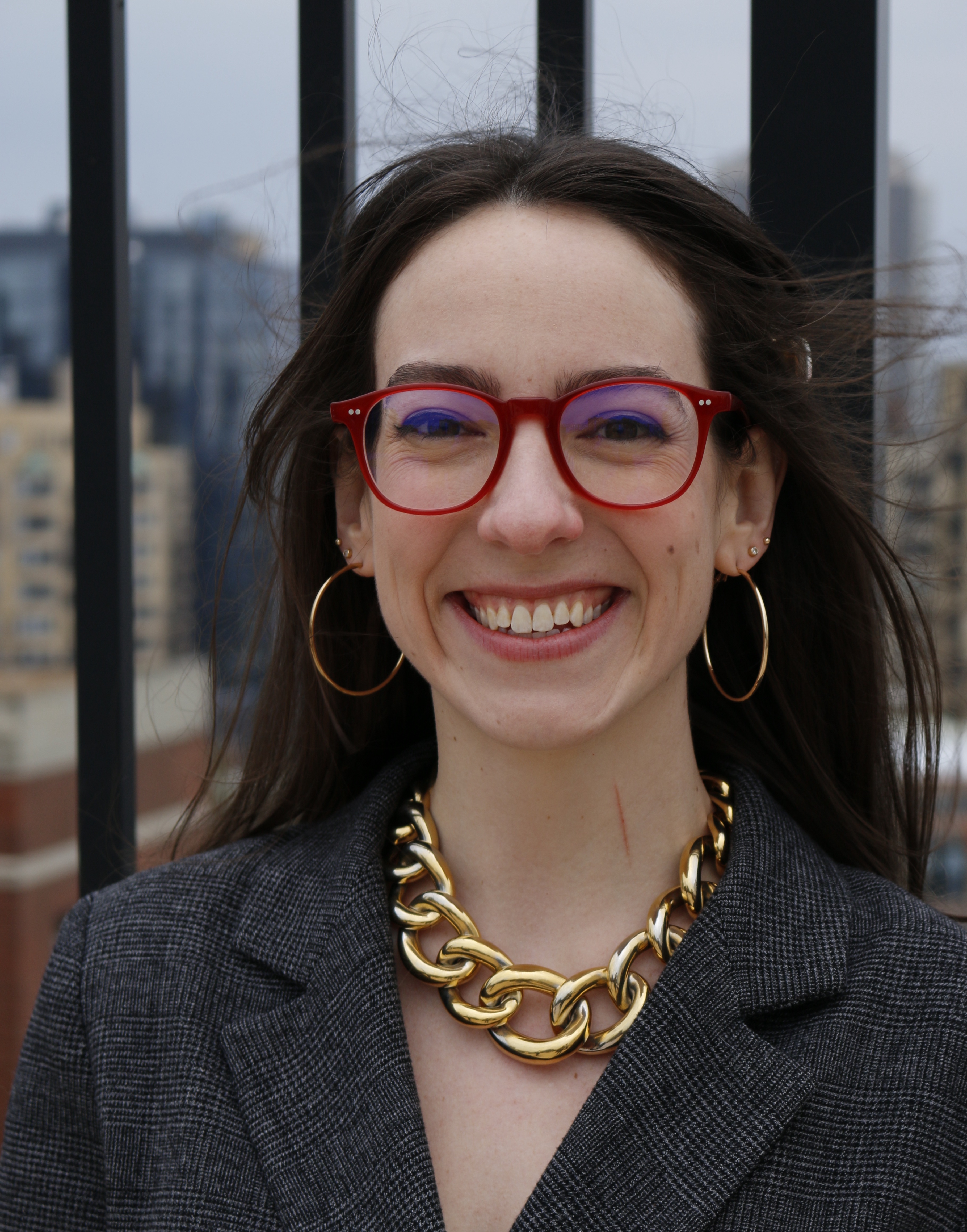How They Made It is an interview series that focuses on indie creators, exploring how they got their start and how their shows and practices have evolved since then. We hope you find inspiration in them for your own creative projects.
If there’s an indie creator who’s hit it big that you think we should feature, send an email to ashley@descript.com.
Joe Pera’s got a voice that will put you to sleep…and he’s proud of it. Joe has been making use of his soporifically unhurried, quietly lulling delivery ever since he first broke out as a comedian, with an animated piece called Joe Pera Talks You To Sleep, which ran on Adult Swim in 2019. That led to another Adult Swim project, a show called Joe Pera Talks With You, which was recently canceled after three too-brief seasons.
Joe’s follow-up has him doing his first podcast, along with his regular collaborators, composer Ryan Dann and producer Grant Farsi. The threesome is independently creating a show called Drifting Off With Joe Pera, which features music from artists like Yo La Tengo and Dan Deacon alongside conversations between Joe and fellow funny people.
While they could have tried to sell it to a network, Drifting Off… is funded entirely by a Patreon, and cultivates community using a Discord channel. We spoke with Joe, Ryan, and Grant about their love for Descript, the intimacy of podcasts, and getting energy from the work. This interview has been edited and condensed for length and clarity.

Why did you decide to start a podcast after Joe Pera Talks to You ended?
Ryan: We had a format that made sense for podcasts. People like to put on podcasts when they're just working around the house, or they've got some time to kill. And sleep is a perfect one. My wife listens to YouTube constantly; I've learned so much from her falling asleep.
What about tech—do you have mics or gear at home?
Ryan: We've accumulated some things, having worked in production for a while. So all the microphones, microphone stands, interfaces, et cetera. I don't know exactly what equipment we're using in terms of, like, microphones and stuff, but for software, Descript is actually something I've been using for a long time. I’ve been proselytizing it to many people because the first time I used it, I was like, “Oh my God, this is awesome.”
We use it for all the recordings. We'll just record the script, and then we've got the transcript, and we edit from there. It works really great for the voiceover and for the interviews. I try to tell as many people as I can about it, because I really do think it's just filling a need in the software space.
Joe, how is writing the show different from writing standup or the TV show?
Joe: Writing happens in all sorts of ways, but usually we land on a concept, and I'll dive into it and start to think of people to interview and approach.
I'll bring a script to Ryan. He'll start to write the music, or even from the concept phase, he starts to send some music ideas, which in turn inspire me, and give me ideas on how to hopefully connect the two, so that both of the processes are guiding each other and interweaving with one another. I think that that's when we get our best stuff, and the show flows in a way that you want for a sleep thing.
This feels like a good use of the intimacy of podcasts—just voices and music in bed with someone, lulling them to sleep
Joe: We've been asked to do this for so long, and I'm so glad we did. It's a lot different now; it feels like tons of celebrities just think that they could do sleep stuff. But I feel we've been at it for a while, and we have our own style.
Drifting Off With Joe Pera is described as “an evening comedy podcast” that pairs gentle narration with immersive soundscapes and relaxing conversations—making that intimate connection even stronger.
We're pretty flexible, too. Because it's just me, Ryan, Grant, and then the artist; we're making all the decisions. We can have as long and short as we want, and we can do whatever we want with it. So it is guided by feel and what the musicians give us, and bouncing ideas back and forth. There's not as many obstacles as television in terms of length and subject matter.
Did you ever consider selling this to a network?
Joe: We felt like we had a strong grasp of what we wanted to do, starting out. A lot of podcasts are funded by ads, and I don't want to put an ad in the sleep space. It feels too intimate; you're getting somebody at their most vulnerable and allowing them to trust you.
Maybe it's dumb. We could probably make more money off of it. But we've been able to keep doing it, to pay cool musicians, and make money ourselves. It's a pretty lucky setup.

How did you land on doing a Patreon?
Ryan: It was a little tricky, because we're not doing a typical model. Patreon actually reached out and gave us some tips, like, “This is what works for other podcasts.” And we're like, “Yeah, that makes sense, but we don't do that.” Like, we put out one episode a month, and that episode is way more highly produced than most podcasts, because most podcasts are just people sitting around and chatting. You can do two of those a week, but that's not what we're doing.
So we had to figure out, how do we get people to feel like they're getting their value? I think people get it. Having it once a month means you can really focus on it. It doesn't just fly by like most other episodes. At this point, we've got a strong Patreon community—over 5,000 members—who really value these monthly episodes.
Joe: Every month is a challenge to get it together. Grant does a massive amount of work: clips for all the social media, all the contracts with the artists. I'm not great with web stuff, but even just like posting, getting the episodes up, getting it on all the feeds. We try and do a relaxing YouTube visual each month. I'm very happy that Grant is able to do that. It's a pretty wide skill set to be able to video edit, talk to the Patreon company, all the stuff.
How do you balance working on the show with your other work?
Ryan: I feel like we always have best laid plans of, like, I'm going to do this today. I can have my whole week planned out, and then once the rubber hits the road, that's when things sort of stall.
I've always struggled with that. Something I've been trying to do more, just to get the momentum going, is to find tedious work and do that first—things that don't require a lot of thinking. If I need to take out the gaps between the timing of the dialogue, that's very mindless, and I can just do it. It varies from project to project, how you keep the fuel. For this, we know we've committed to putting out one a month, and deadlines help. When you're not under a deadline, it's easier to be like, “Ah, this isn't quite ready. I'll tinker on it more.”
Joe: There’ve been some tough months, ‘cause I did a standup special, and I've been touring while doing the podcast. But my big motivation in most stuff that I make is, if we have the right idea that we're excited about, knowing that we have to execute it in a way that doesn't let the idea down is really strong motivation. The worst thing to me is having a good idea and then not following through on it properly, or not being as good as you want it to be.
It’s energy-giving to have the right interview, or when you're tired, to get to listen to a score by Ryan or one of the musicians that we're working with. Dan Deacon's score—when that came in I was like, “Oh my gosh, I have to write harder to make this as good as it can be and not let them down, and not let the listeners down.”

Grant, how have you helped grow the audience?
Grant: We set up the Discord, I think about three or four months into the launch of the podcast. That has helped a lot with building a community. That’s something that we’re constantly updating—like, setting up the channels, that's always an ongoing task. I think people appreciate a chance to come together around something.
Ryan: I watch the Discord occasionally, and people who are fans of Joe's work and of the show often have other interests in common—they do woodworking, they do gardening. So the Discord is a great place to find other people that like the sort of the stuff that you like. That's been nice, watching people post pictures of what they grew this summer, or places they've been. It's also great to see we're at a 4.9 rating on Apple Podcasts, which tells us people are really connecting with it.
What are your tips for beginning podcasters?
Joe: I can't over-say—I know this is a Descript interview, but that really shortened the amount of work it was with every interview.
Just do it. You'll figure it out. That's what I say when people ask about doing stand up or whatever: just get started, and you'll figure it out along the way. Even if it's a stressful moment, it’s fun because you're doing it. And that’s better than just thinking about it.
Ryan: Going back to what Joe was saying earlier, you have to really get energy out of what you're doing, and enjoy it. And that's what people will enjoy about listening to the show, is the fact that you are engaged in it. You have to really be into whatever you're putting out.
Part of that is reducing the headaches. So try and automate, and make it as easy as possible. Which, again, is why Descript has been really helpful—because if we had to get a transcriptionist, or having to edit everything without the transcript, it would have been really hard. The fact that we don't have that headache means that we can focus more on the fun stuff, and because we can focus more on the fun stuff, the episodes are more fun.
Frequently asked questions
What is Drifting Off with Joe Pera?
It’s an evening comedy podcast created by comedian Joe Pera and composer Ryan Dann. Each episode blends quiet humor, calm conversations, and soothing music to help you relax or even fall asleep.
Where can I listen to Drifting Off with Joe Pera?
You can find it on Apple Podcasts, Spotify, or wherever you get your podcasts. You can also subscribe to the show’s Patreon for extended episodes and bonus content.
Is Drifting Off with Joe Pera free or paid?
The podcast releases free episodes for everyone. By joining their Patreon, you can support the production and unlock extra content like extended “Max Drift” episodes and exclusive readings.
How often do new episodes come out?
The team generally aims for one highly produced episode each month, though they sometimes take brief breaks to focus on other projects. Patreon updates usually contain news on upcoming releases.
Does Drifting Off with Joe Pera replace his Adult Swim show?
This podcast isn’t a direct continuation of Joe Pera Talks with You. It’s a separate project Joe created with his collaborators to explore a calmer, more intimate audio format and share relaxing comedy.
For newbies, tools like AI-driven filler-word removal, instant transcription, and automatic captioning can really smooth out your workflow—so you can jump straight to the creative part.






%20(1).JPG)


























